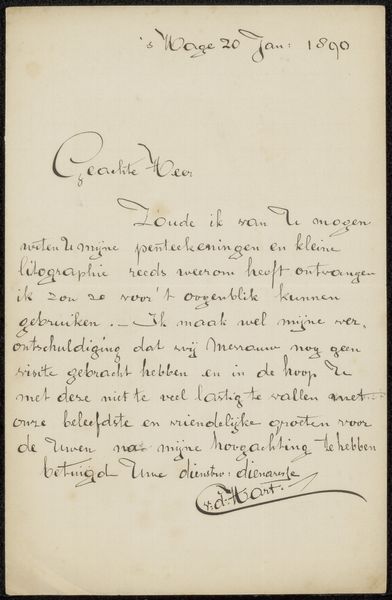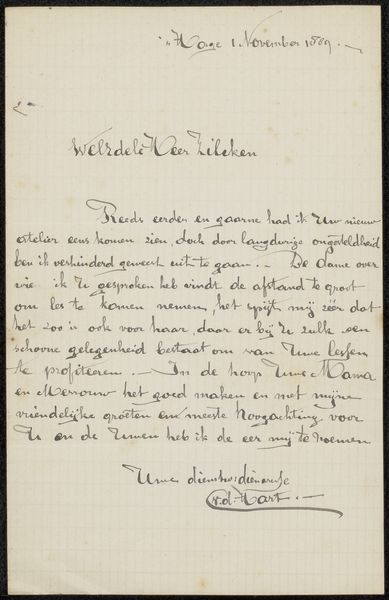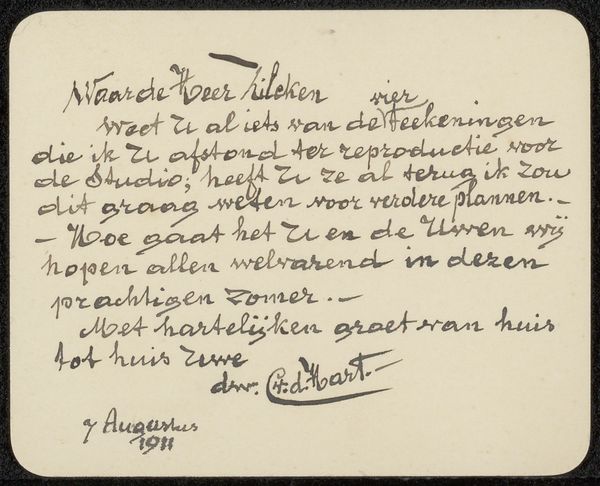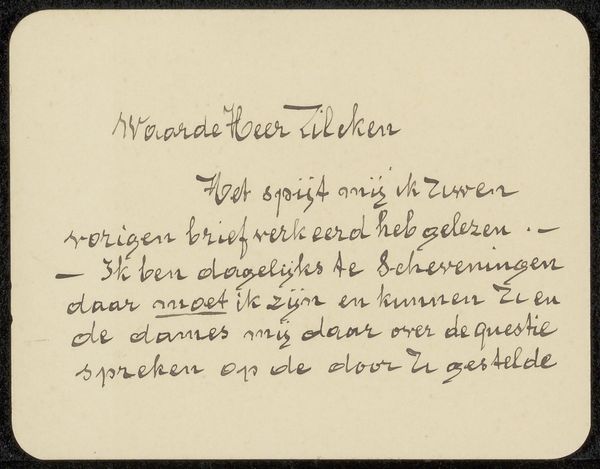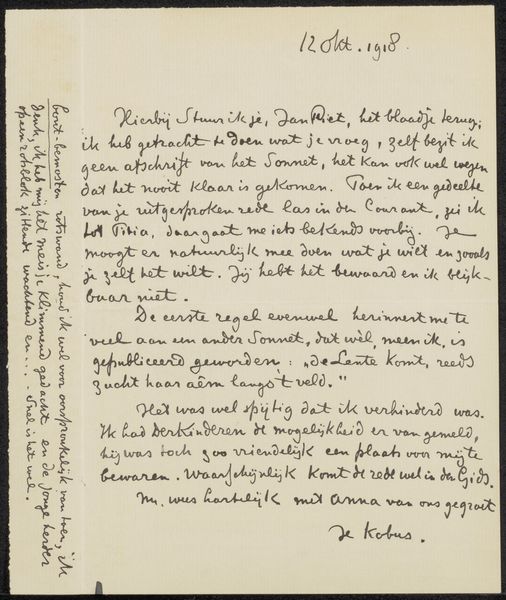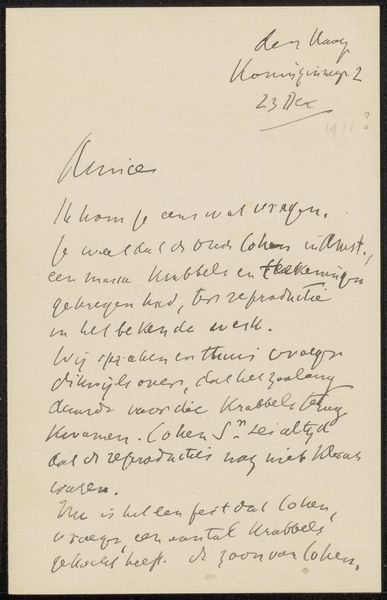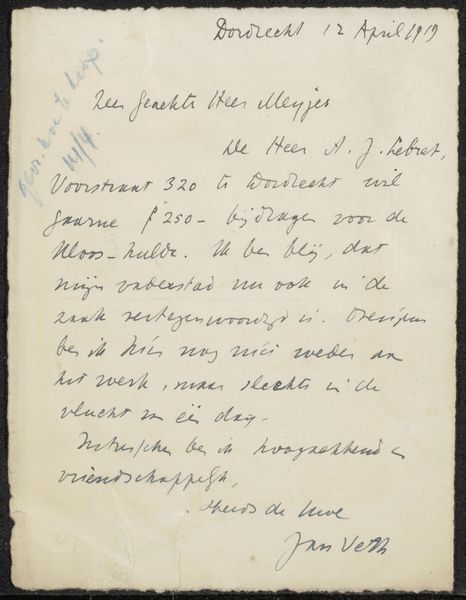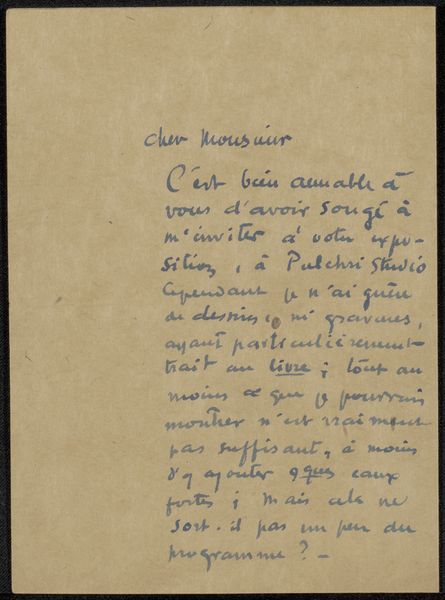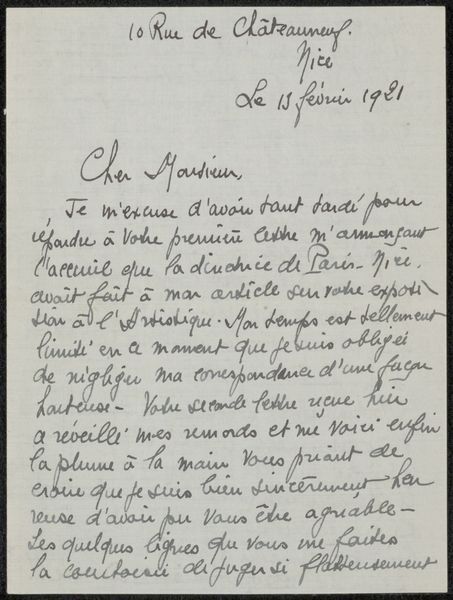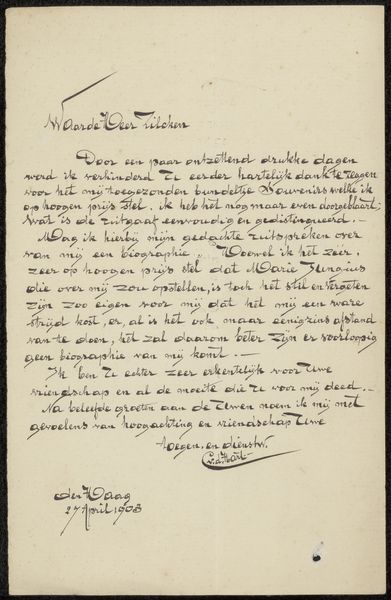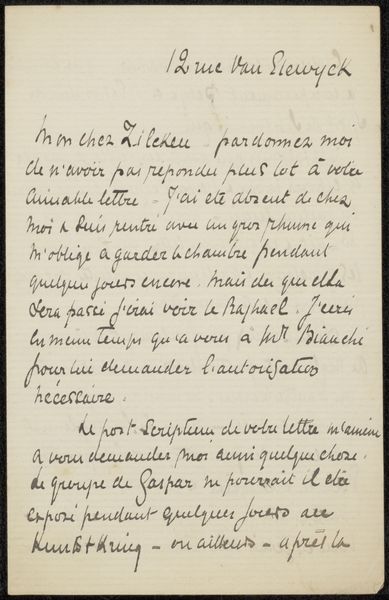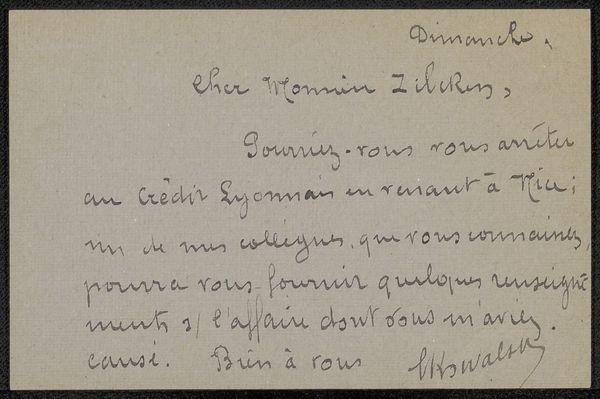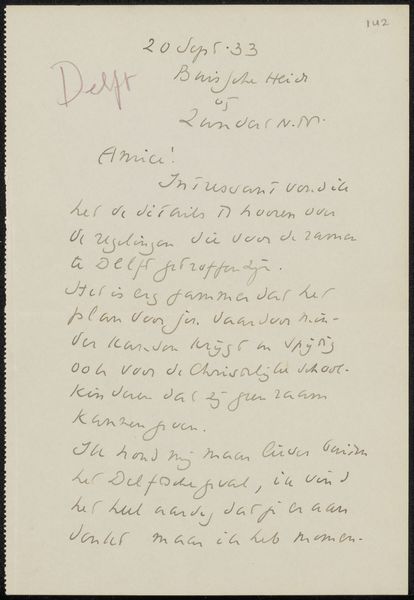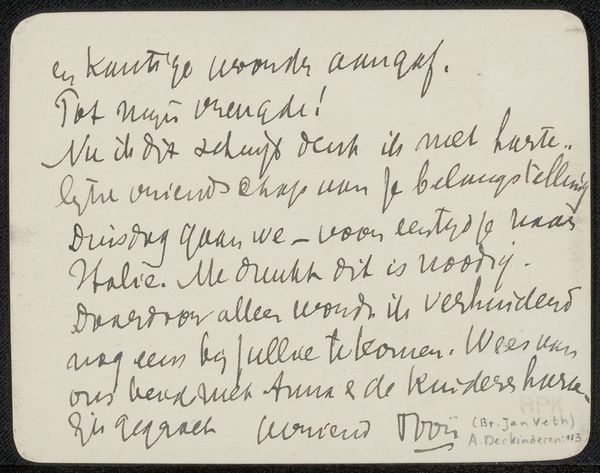
drawing, paper, ink, pen
drawing
hand-lettering
hand drawn type
hand lettering
paper
ink
pen
Copyright: Rijks Museum: Open Domain
Curator: Here we have "Brief aan Philip Zilcken," a drawing using ink on paper, likely created around 1915-1916, by Cornelia van der Hart. The beauty of it is so simply captured isn’t it? It feels immediate, and like a tangible connection to the artist's thoughts. What stands out to you most about it? Editor: It's beautiful in its simplicity. It is just text, like an old handwritten note. It’s strange to see a letter presented as art, since correspondence is more commonly viewed as functional. Curator: Absolutely. It invites a deeper consideration of handwritten communication. This was a period where letter-writing held a significant place in cultural and artistic exchange, wouldn’t you say? The act of putting pen to paper was, in itself, an art. What do you think Cornelia wanted to accomplish? Editor: Maybe it’s a self-portrait, not of how she looks but how she writes – how she connects. Did people keep correspondence as artwork in this period? Curator: Possibly, but it's also easy to imagine these getting tossed at some point! I imagine, since she mentions wanting the return of "motiefteekeningetjes," drawings that acted as title headings and closing images for a program, that it was mainly a functional item. Do you think knowing what we know of it now enhances it as art, or do you find its potential as merely correspondence diminishing? Editor: Definitely enhances. I mean, if it were just something to be tossed after its purpose was fulfilled, we wouldn’t be here looking at it in a gallery! Curator: Right? Sometimes, it is the perceived mundaneness of the ordinary that elevates a piece to true art. Something intended to communicate that now allows us a portal to look back in time, or muse about relationships and communication then versus now. Food for thought.
Comments
No comments
Be the first to comment and join the conversation on the ultimate creative platform.
